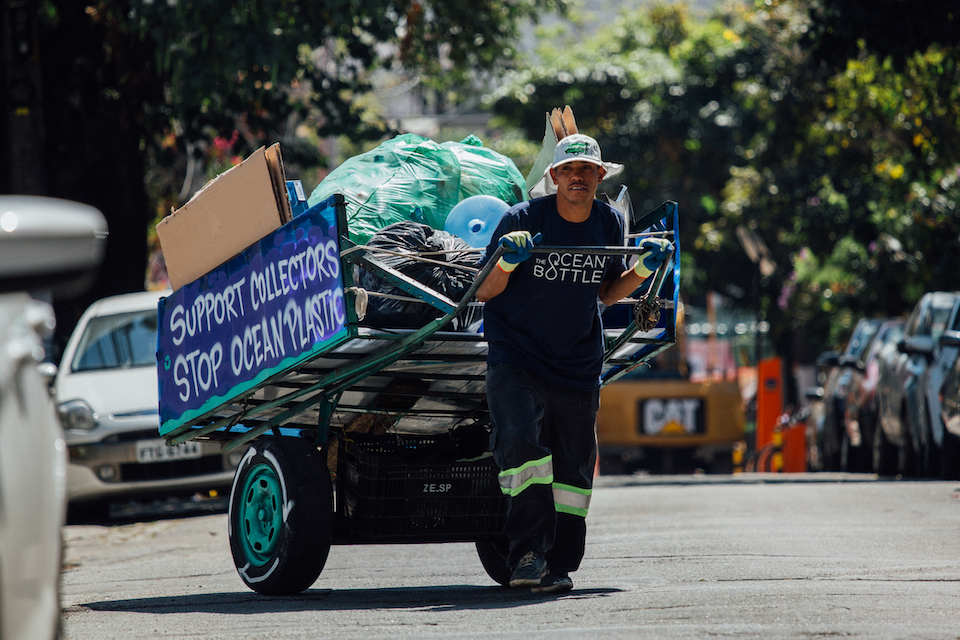If your palms get sweaty when the subject of politics comes up at the dinner table, you’re not alone. Politics can be dry, complex and in some cases confronting. But two journalists, Justine Landis-Hanley and Elfy Scott, are working to change that perception and make politics more accessible through their podcast, Left Right Out.
Each week the duo publishes episodes based on questions that have been asked by their listeners, from understanding the Federal budget to unpicking which party is best on climate change and why housing in Australia is so expensive.
“The goal of the podcast for us is to provide young people, particularly young women, with a space that answers their questions about politics in a non-judgemental way,” founder Justine says. “[We want] to empower them with the information that they need to not only go to voting day and vote for a party or person that they like, but more broadly to be able to engage in conversations around politics.”
“Ultimately, if we can convince one person that they’re entitled to care about politics and to speak up about things that matter to them, then I think we’ve succeeded,” co-host Elfy says.
Justine and Elfy both have an impressive track record of making information accessible and entertaining. Justine is also a researcher for one of Australia’s biggest podcasts, Shameless, while Elfy is working on her first book and is best known for hosting the daily news show, The Junkee Takeaway.
The duo takes turns to research the content for each episode and use pop culture references to explain complex political situations and relationships, such as movie references to understand negative gearing. “We have tried to foster an environment where you can ask anything, and I say that as somebody who entered newsrooms five years ago
and didn’t know much about politics,” Elfy says. “Even if questions might sound simplistic to you, very often they’ll have
a complex and interesting answer. Hopefully we can build this safe space and encourage people to ask those questions.”
When the pair first started recording in February this year, they were worried that no one would message in with questions. But they have been inundated with questions from the get-go, especially about women’s rights, climate change issues and each political party’s ins and outs.
Justine and Elfy describe it as democratising journalism — letting the audience decide what topics to cover and what’s written. “They are questions I don’t see answered a lot when I open the papers, and so I think that it is a really important, democratic role we are filling,” Justine says. “The point in following these things is that politicians are literally working for us. The money we earn and pay in taxes not only pays for their job, it pays for all the projects and all the work that they do. It’s really, really important that we keep an eye on what our employees are doing, and make sure that they’re working for us and not working for themselves.”
Despite Federal politics being heavily featured in Australia’s daily news cycle, several polls have found Australia is largely tuned out of it. Data from Ipsos revealed that while interest in politics has risen during the pandemic, most Australians are not interested in the outcomes of the political process or don’t expect any outcomes at all.
Justine, who has also worked as a political advisor, says politics isn’t designed to be easy to understand. In fact, it’s advantageous for politicians to be vague. “Politics is as much an exercise in democracy as it is in public relations and marketing, and we need to be wary,” she says. “It’s much better in those situations for people to fully understand what is being sold to them.”
The difficulties in understanding politics also come down to a lack of representation in parliament, according to Elfy. “From my perspective, being a person of colour, I think that politics has shut out and marginalised people just by virtue of those who run our country and what they look like,” she says.
“I do think that it benefits politicians because it means that marginalised communities can’t speak up for themselves and can’t assert issues that might lead to further equality. It maintains the status quo.”
When it comes to gender in politics, Australia has never achieved equal representation in the Federal parliament. Currently, about 38 per cent of politicians are women. “We know that there are problems when it comes to gender representation in politics,” says Justine. “We also know that men are much more likely to speak even when they know less about issues, and women are more likely to hold their opinions back if they feel even the tiniest bit uneducated on an issue. And I think politics, much like other areas such as maths and science, has so often been wrongly characterised as a men’s topic.”
It starts with women feeling as though they can be engaged in the conversation and feel educated and entitled to speak about politics with anyone around them, according to Elfy. “It’s just about getting your foot in the door and building that sense that you can participate,” she says. “Ultimately, I think if people do feel that sense of empowerment, then maybe they’ll feel that sense of empowerment to represent others or manage people or take up positions of leadership. It really starts with a conversation.”
Simone Ziaziaris is a freelance journalist from Sydney who loves writing about the arts, sustainability and human rights. When she isn’t at her computer typing, she is out and about taking film photos. Take a sneak peek at her work @simoneziaziaris on Instagram.




